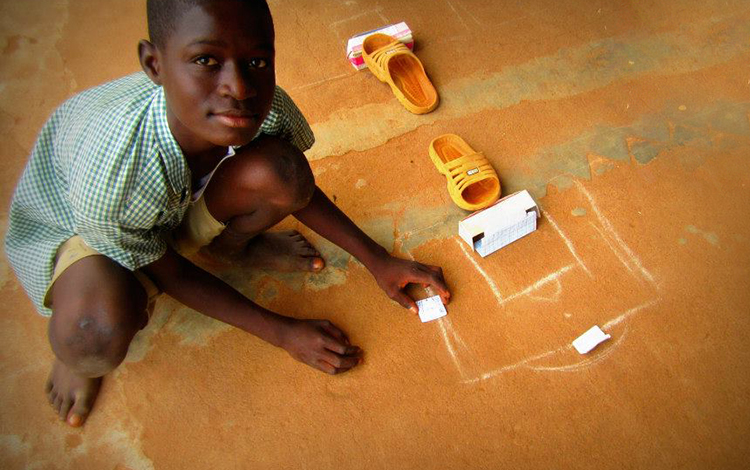The Ayele Foundation employs a model that has been proven through time: bringing transformational change to communities by giving them the tools to continue on, long after our work with them is done. One school and one child at a time, we can empower entire communities. We believe that by empowering not just the children in our schools, but also the parents, families, and community leaders with access to new educational methods and quality educators, the pride that they will take in fostering the mission of the foundation longterm will be greatly increased.

Building schools for a new tomorrow:
The first phase of our plan is to introduce new and innovative curriculums into the schools that we serve. There is a standard Ghanian curriculum composed by government educators. And yet most children in rural Ghana are being taught from very basic, rudimentary educational model. This model only prepares them for a life that continues a rural cycle of poverty and illiteracy. When any of these students decide to continue on to secondary school (or what in the US is referred to as high school) they fall short in significant ways to what their urban peers already know. One of the main areas of deficiency is in English proficiency. This is of primary concern because it greatly decreases the ability of the people of rural Africa to receive training in skills that can aid the development of their communities.
We’re working with universities both in the US and Ghana to develop curriculum for rural areas that can build upon the compulsory education, but add it to make it even more dynamic and innovative. This will accomplish two things. The first is that we will be able to attract teachers to our schools who want to be a part of implementing these new curriculum models. What were once dilapidated buildings will be modern, sustainably built structures with an exciting, challenging learning environments. The second is that the students will be prepared from the preschool level to be competent in ways that foster the development of literacy and awareness of the society around them. They will have the opportunity and skills to go on to further their educations. If they choose to stay in their own communities, they can strengthen and build them in ways that can create positive growth.
The final phase for the foundation will be the introduction of technology into schools. When Cassis Smith, the founder of the foundation, was reflecting on his education, he shocked the members of our team who were raised in the United States by sharing that he hadn’t even touched a computer before high school. “And that was only 3 computers for about 500 students,” he said. By bringing technology directly into the educational process of students who would otherwise have no experience with it until adulthood, we can vastly improve the quality of their education and their readiness to advance their futures. Additionally, the models that we can use for education increase dramatically when technology can be a part of the curriculum.
